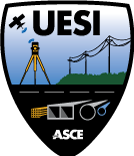UESI's Utility Investigation Schools (UIS) are in-depth educational sessions that highlight the latest UESI standards. The sessions are led by professionals that developed and actively utilize the standards in practice. Presented in partnership with the Buried Asset Management Institute - International (BAMI-I), recent sessions highlighted the Standard Guideline for Investigating Existing Utilities (ASCE 38), and Standard Guideline for Recording and Exchanging Utility Infrastructure Data (ASCE 75) to improve utility investigation practice.
In a recent session in New York City, Phil Meis, Chair of the ASCE 75 Standards Committee, presented on the new UESI Standards ASCE 38 and 75, to an audience that included representatives from City of New York, the National Science Foundation, the National Underground Asset Register (NUAR), and officials with the Underground Utility Data Workshop, focused on the NYU Unification for Underground Resilience Measures (UNUM) project. Attendees learned how ASCE 38 investigations data can be used to reap value during project development and how they can utilize 75 to sustain the information and over time manage and improve the data for a myriad of asset management, damage prevention, and emergency response purposes. Josh Lieberman of the Open Geospatial Consortium (OGC) also spoke and related how the ASCE standards play a key role for providing data for their Model for Underground Data Definition and Integration (MUDDI) standard initiative.
Additionally, the session provided overviews on several focus areas of the new standards: the application of the ASCE/CI/UESI 38-22 (ASCE 38) for performing a professional utility investigation to be used for project development; application of ASCE/CI/UESI 75-22 (ASCE 75) for pushing the ASCE 38 data into digital format and maintaining the data for long term asset management (including damage prevention, planning, emergency response, resiliency analytics, etc.); and the Open Geospatial Consortium (OGC) adoption of the ASCE 38 and 75 standards for the Model for Underground Data Definition and Integration (MUDDI) which will enable OGC compliant developers in GIS, CADD, augmented reality viewing, machine guidance, digital project delivery applications to seamlessly and securely share 3D digital data.


